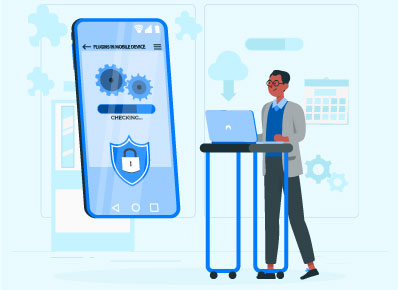In the ever-evolving landscape of Mobile Device Management (MDM), technology continues to play a pivotal role in streamlining processes and enhancing efficiency. One crucial element contributing to the adaptability and functionality of MDM solutions is the use of plugins. In this blog post, we’ll delve into what plugins are, how they work, the various types available, and their significance in the MDM industry.
Understanding Plugins
At its core, a plugin is a software component that adds specific features or functionalities to an existing application. In the context of Mobile Device Management, plugins serve as modular extensions that augment the capabilities of the MDM platform. These extensions enable MDM solutions to cater to diverse needs, providing a more tailored and versatile approach to device management.
How Plugins Work
Plugins operate by integrating seamlessly with the MDM system, extending its capabilities without altering the core architecture. They act as add-ons, allowing administrators to customize and enhance the MDM functionalities based on their unique requirements. This modular approach ensures flexibility, scalability, and the ability to adapt to changing technology landscapes.
Types of Plugins
1.Security Plugins:
– Enhance device security with additional encryption layers.
– Integrate threat detection and response mechanisms.
2. App Management Plugins:
– Streamline app deployment and updates.
– Provide insights into app usage and performance.
3. Location Tracking Plugins:
– Extend location-based services for better tracking and geofencing.
– Enhance reporting accuracy through geospatial data.
4. Compliance Plugins:
– Automate compliance checks and enforce security policies.
– Ensure devices adhere to regulatory standards.
5. Communication Plugins:
– Facilitate secure communication channels.
– Integrate messaging and collaboration tools.
Usage of Plugins in MDM
1. Customization:
– Plugins enable administrators to tailor MDM solutions to specific organizational needs.
– Customization ranges from security protocols to user interface enhancements.
2. Scalability:
– As organizations grow, MDM needs evolve. Plugins provide scalability, allowing MDM systems to expand functionalities without the need for a complete overhaul.
3. Efficiency:
– Task automation through plugins streamlines MDM operations, reducing manual interventions and increasing overall efficiency.
4. Adaptability:
– With technology advancements, new challenges arise. Plugins ensure that MDM systems remain adaptable to emerging trends and threats.
Conclusion
In the dynamic landscape of Mobile Device Management, plugins play a pivotal role in enhancing adaptability, functionality, and security. As organizations strive to stay ahead in the ever-evolving world of technology, leveraging the power of plugins in MDM solutions becomes essential. By understanding the types and applications of plugins, administrators can tailor their MDM strategies to meet the unique needs of their organization, ensuring a robust and future-ready device management approach.

